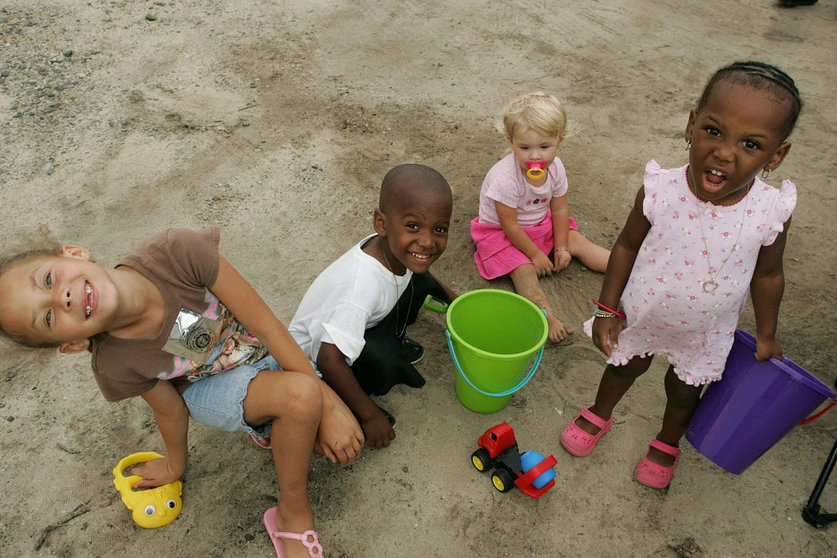“I am an immigrant to this country and I accept that these are barriers I am deemed to meet,” my husband replies.
We are talking about the following episode at school: our daughter is in first grade; we are not the only multicultural family in her class, nor we are the only missing to speak fluent Finnish.
Since the very start of the year, I have given extensive feedback about being cut off from school communications and our struggle to meaningfully participate in our child’s school life. I reminded them how Espoo is a multicultural city where 1 every 5 people does not speak Finnish or Swedish.
A couple of weeks before this conversation at home, I spent half of the parent-teacher meeting explaining to the class teacher how this affected us and how we felt invisible every time a message in Finnish came through. I had asked her to become an advocate for families like ours: I understood resources were limited and decisions were often out of her or the principal’s hands, but they both could still make sure our voices were heard there where change could happen.
After our conversation, the teacher sent the meeting minutes home and there was no trace of my feedback on communication barriers. I was explaining my husband I wasn’t ready to let this slide.
Marginalization normalised
His response hit close to home for several reasons. First, because I have heard the same message many times over from other immigrants. We have all normalised marginalization to the point of struggling to believe we deserve inclusion. In one instance another immigrant – someone who’s on the frontlines of inclusion in Finland - called me “entitled” for calling out language barriers and demanding access to essential services.
Not only we have stopped dreaming of a world where people are not marginalised on the basis of language, nationality, race, disability, gender identity, sexual orientation: we have internalised this messed up reality so strongly that we cannot bear if someone unapologetically challenges it, even – and this is ironic – when it’s in our own interest. Familiar abuse sounds safer than a daring new idea.
On top of that, I felt hurt because I keep struggling to illustrate this perspective and my vision to people, apparently those close to me too. I understand challenging norms is an uphill battle, but I wish I didn’t have to fight it at home ever.
I do not want my kids to squeeze to fit in boxes that were never built for them to begin with. So why should we parents do that in the first place? Why should we even accept those boxes?
Finally, it was painful to think of our children. One is a girl and one a child of colour, both children of immigrants, who live in a world tailored for the white man. Despite being young, they have started to be confronted with situations that ignore if not exclude them. Mere days before, while we were reading together, my 5-year-old son had interrupted me to ask “Mamma, why there are no brown people in this story?”.
I cannot bear the thought that when meeting such situations, they’ll simply resign to them. I do not want them to accept to be invisible as the world asks them to be without putting up a fight.
I do not want my kids to squeeze to fit in boxes that were never built for them to begin with. So why should we parents do that in the first place? Why should we even accept those boxes? Finnish society has changed dramatically in the past decades, even in the decade I lived here, we need new boxes and we need them to be dynamic and evolve along with society.
I do not blame my husband nor other immigrants for not seeing what I see. I appreciate there are other ways to fight the issue and I understand even those who grew too tired to fight. I was on that side of the fence years ago and most of Finnish society reinforces the message that we are “guests” in this country and we should gratefully accept marginalization and say kiitos back whenever someone throws us some scraps of inclusion.
A Finnish citizen
Things shifted in my mind when I became a Finnish citizen. Mind you, I do not imply the status of citizen entitles anyone to anything extra – most of your lawful rights depend solely on being a resident (and ethically by simply being human) – but that was the moment where I didn’t feel like a “guest” anymore. Even if I were to move out tomorrow, this would still be my country as much as it’s any Matti’s. I can vote and my voice counts as much as theirs.I reviewed my personal history in this country.
Even if I were to move tomorrow, this would still be my country as much as it's any Matti's
I realised I had considered myself as a second-class member of Finnish society, despite being a valuable part of it. I had actively contributed to the community through taxes, volunteering, raising future citizens, and much more. If anything, my diversity had breathed innovation into it in many ways.
How does the school story end, you ask. When I talked to the teacher, I wasn’t expecting that magically communications would turn bilingual. What I deemed unacceptable was that my feedback wasn’t officially recorded on paper, like that conversation never existed.
My husband didn’t fully understand my indignation, but he supported me. I wrote to the teacher and the principal to demand for my feedback to be officially recorded, even if no concrete action will be taken. I also reminded them how one of the school values is inclusion (ironic). They committed to do better in the future and to rewrite the meeting minutes. Since then, the teacher has started sending bilingual communications (hopefully it will last).
My school staff are not bad people. They are like the tens of other Finns I met in similar position: people who worked and behaved for years in a certain way, unchallenged and even supported by regulations, policies, and the mainstream narrative. Everyone is ready to jump on board on the dream of an inclusive and equitable society, but only a handful are ready to fight for it. Most just hope to inherit such society for free, magically raining over their heads. Time will tell what group they belong to.
Will my feedback to the school change anything in the long term? I don’t know, but at least I’m gambling for it.
Because if there’s something I know is that silence and being invisible does not change anything for sure. At the very least, I can show my kids that I’m not willing to fit in the box and hope one day they’ll be inspired to do the same.








